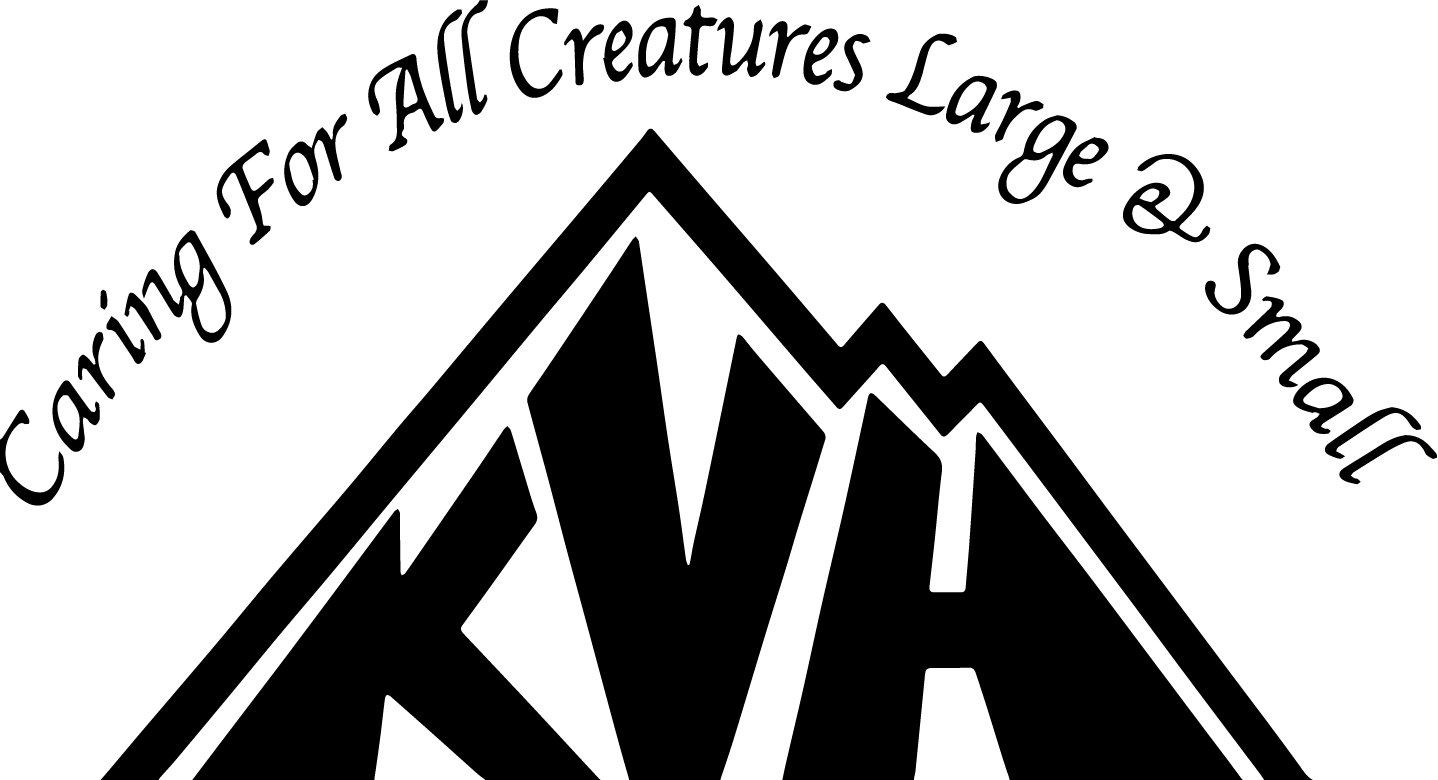By Erin West, DVM
Along with lots of fun, Kulshan Veterinary Hospital knows the holiday season brings lots of stressors. Kulshan’s doctors and staff don’t want your pet’s health to be among them. Lots of new foods, visitors, and decorations can mean lots of new risks for pets. Here are some good ways to help keep your pets happy and healthy this holiday season.
Don’t let Fido share in the feasting.
- While a little plate of Thanksgiving turkey may seem harmless enough, that is often not the case. Rich, spicy, or fatty foods (such as turkey skin, gravy, red meats, many side dishes, etc) can trigger pancreatitis in dogs and cats, a potentially life-threatening disease that causes severe GI upset. Any food outside of your pet’s normal diet can also generate inflammation in the stomach or intestines, causing unpleasant side effects for your pet and unpleasant messes in your home.
- Many common foods can be dangerous for pets for reasons besides pancreatitis. Turkey or chicken bones are hollow and notorious for splintering, which can cause major trauma to the digestive tract, often requiring surgery. Beware of bones or treats (or toys!) that can be broken down into smaller pieces, as these can turn into choking hazards or even obstruct the intestinal tract if swallowed.
- Some foods are toxic for animals. Chocolate, macadamia and other nuts, caffeine, alcohol, grapes, raisins, onions, garlic, nutmeg, anything containing the artificial sweetener xylitol are among the common holiday foods that can cause poisonings in animals.
Watch out for tempting decorations.
- The Christmas tree can be too tempting for pets to leave alone. Ornaments often resemble pet toys and can cause injuries if broken or ingested. Tinsel and other long strings pose a particular risk to cats, who will often swallow it as they bat it around. Long string-like objects tend to get caught in the upper intestines and create an accordion effect, leading to major damage inside the intestines.
- Strings of lights, wires, extension cords, or electric decorations can also be tempting for chewing and potential burns or electrocution. Unattended candle flames or hot wax present burn risks also, not to mention a fire hazard if knocked over. Batteries will cause chemical burns or toxicity if chewed or ingested.
- Decorative plants can also be toxic. While poinsettias are not overtly toxic and generally cause only mild stomach irritation if swallowed, other holiday plants can be deadly. Prevent pets from accessing mistletoe, holly, lilies, amaryllis, and even pine needles. Even Christmas tree water can contain toxic chemicals. For a full list of toxic plants, visit the ASPCA pet poison control website.
Help your pets and visitors to coexist peacefully. Having the in-laws over to stay is stressful for your pet too! The holidays generally bring lots of noise and lots of strangers, which can be very scary for pets.
- Houseguests may not be used to living with pets. Accidental poisoning with human medication is easily prevented by keeping all medications out of reach.
- Monitor children closely when interacting with your pet, and watch for any signs of stress in your pet (licking lips, tail tucked, ears back, eyes wide, hesitancy or trying to get away, hissing or growling, darting movements). If noted, rescue your pet and give them some quiet time to relax.
- Make sure your pet always has a quiet safe place to escape to if needed. This can be a high perch for cats, a bedroom that is off-limits to visitors, or crate where your pet feels relaxed. Make sure that guests and kids know to respect your pet’s choice to retreat when he or she needs some quiet time. Feliway for cats and Adaptil for dogs are calming pheromone products that are very helpful for decreasing stress. A plug-in diffuser, perhaps in the main living area or near your pet’s escape area will help pets manage stress more effectively.
- Avoid noisy activities, loud toys, or noisemakers around nervous pets. If needed, place pets in a place where they feel safe before starting loud or stressful activities.
Kulshan Veterinary Hospital wishes you and your pets a happy and safe holiday season. Please feel free to call with any pet health questions or concerns.

